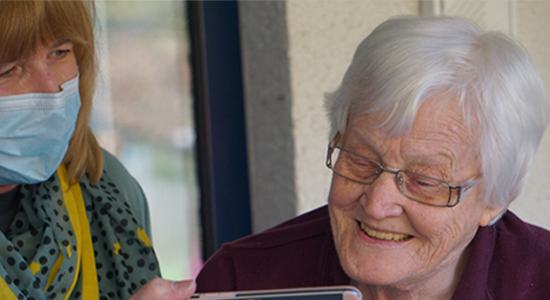In July 2021 the government announced a new piece of legislation called The Health and Social Care Act 2008 (Regulated Activities) (Amendment) (Coronavirus) Regulations 2021. Although this was not an employment law piece of legislation but under health and social care, it required all workers within a care home setting to be vaccinated against COVID.
Legislation
Once the legislation was announced, the government placed a 16-week grace period within which all affected workers could get the vaccine. Meaning that by 11 November 2021, all affected workers in a care home setting needed to be vaccinated unless medically exempt.
Care Homes Affected
Care homes within England, registered with the CQC, and provide personal care and nursing for residents are now required to comply with the Legislation. Care home workers within Scotland and Wales are not legally required to have the vaccine, however they may be contractually required by their employers.
Workers Affected
The Regulations affect anyone working inside a care home providing accommodation for persons who require the regulated activity of nursing or personal care. This includes workers employed directly by the care home or care home provider, agency workers deployed within the care home and any volunteers.
The condition applies regardless of role, with the exception of those with medical exemptions. Any workers who are under the age of 18 are not required to be vaccinated until they turn 18.
The regulations also apply to other workers such as those coming into care homes to do other work, for example healthcare workers, tradespeople, hairdressers and beauticians, and CQC inspectors, unless they have a medical exemption. Those working in the home on “urgent maintenance work” are exempt.
NHS Workers and NHS Settings
On 9 November 2021, the government announced that as of 1 April 2022, all NHS staff will be expected to be fully vaccinated or risk having their employment terminated. Those who are medically exempt as well as those who do not have face to face contact with patients in the NHS settings will be given exemptions.
Medical Exemptions
Guidance to clarify on who is medically exempt is still to be published by the Government. This will reflect the reasons not to administer a vaccine under chapter 14a or the COVID-19: The Green Book and clinical advice from the Joint Committee on Vaccination and Immunisation (JCVI).
Currently there is no exemption on religious grounds, or philosophical belief, for example.
Care home workers will need to apply for a formal medical exemption through using the NHS COVID Pass system.
Failure of Affected Workers to get Vaccinated
If the affected workers fail to get vaccinated, legally they are not permitted to go inside the care home meaning that they cannot continue to work there. Employers would be in breach of a legal requirement by allowing them to work inside the care home.
If redeployment outside the care home is an option, then this should be offered to the workers as a suitable alternative role.
If no redeployment is available, then the employee must be dismissed. Agency workers would need to be directed back to their agency. Casual workers would have their contract terminated and volunteers would need to be told that the arrangement must stop.
Fair Dismissal for Affected Employees
A fair procedure must be followed to get a fair dismissal. Normally you would use the potential fair reason of ‘statutory ban’; however, since redeployment must be considered ‘some other substantial reason’ (SOSR) would be more suitable. If redeployment has been considered and no suitable options or roles are available, then this should be raised with the employee. It should also be included within the dismissal letter with the other substantial reason being along the lines of ‘in accordance with the applicable Regulations, you have failed to provide evidence that you are fully vaccinated/medically exempt, and no suitable redeployment has been identified.’
The employee would also need to be made aware that the dismissal notice will be rescinded if the employee produces the evidence of vaccination after it has been served.
Medically Exempt Employees
Dismissing employees that are medically exempt is most likely to be seen by a tribunal as unfair and may also be disability discrimination. Employers would be required to risk assess those employees and take additional safety measures to ensure their risks are mitigated. This could include reduced contact time with residents or a requirement to wear extra PPE.
This article is only guidance and does not constitute legal advice. If you have an enquiry about a specific problem, please contact our advice team on 0333 2407 208.
Sources:




